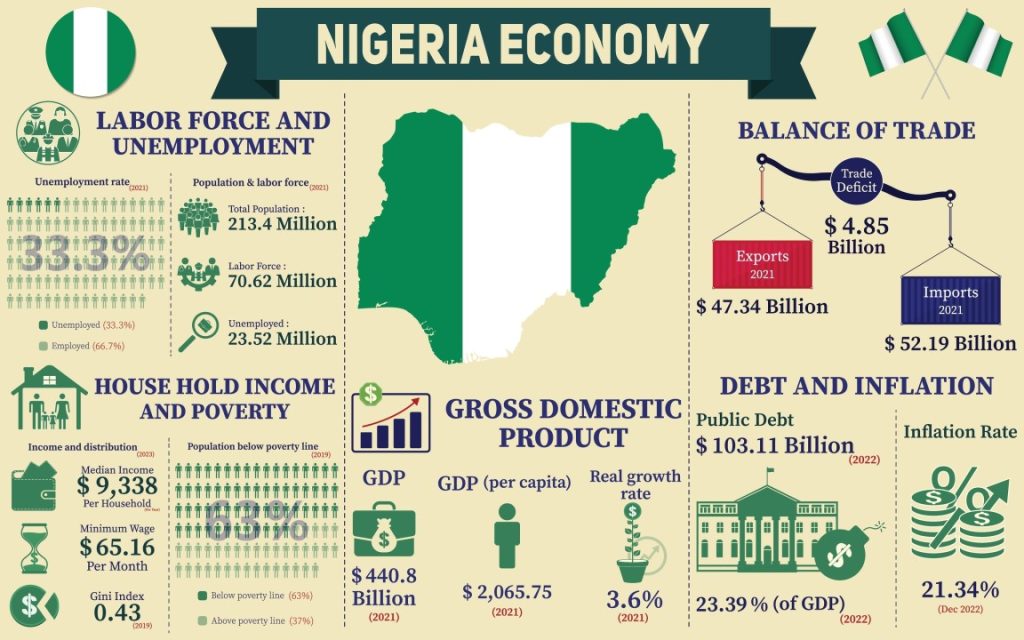
Chris Okpoko
In the tapestry of global politics, nations weave stories of triumph and tragedy, resilience and despair. Nigeria today stands as a cautionary tale, a profound reflection on the socio-political and economic ramifications that can unravel when governance falters, corruption thrives, and people’s welfare is subordinated to political ambitions. Its story encapsulates the fears of many when they witness the persistence of systemic failures characterized by widespread poverty, insecurity, and the erosion of trust in public institutions. To grasp the full weight of this assertion, it is essential to explore the historical context, the current state of affairs, and the implications of these realities on the Nigerian populace.
To understand this reality, it is imperative to look into Nigeria’s past. Once heralded as the “Giant of Africa,” Nigeria possessed the potential to emerge as a shining beacon of progress on the continent. Abundant natural resources, rich cultural diversity, and a youthful population set the stage for a thriving economy. However, independence in 1960 laid bare the challenges that would plague the nation for decades. Political instability, marked by coups and a civil war, sowed seeds of division and distrust within the populace.
The promise of democracy was continually overshadowed by corruption. Leaders who emerged from military rule failed to establish a government of the people, for the people. Instead, the oil boom of the 1970s became a curse rather than a blessing, leading to rampant mismanagement of resources and increasing wealth disparities. As a result, Nigeria’s immense wealth coexisted uncomfortably with severe poverty—an irony that continues to baffle observers today.
Fast forward to today, and the specter of corruption looms larger than ever. Transparency International’s Corruption Perceptions Index consistently places Nigeria among the most corrupt countries in the world. Public funds that should be invested in education, healthcare, and infrastructure vanish into the pockets of unscrupulous officials. In this environment, citizens grow disillusioned with their leaders, leading to a cycle of apathy and disenchantment.
Given this context, Nigeria’s experience serves as both a warning and a call to introspection. It urges other nations to recognize the potential for similar patterns of corruption, economic mismanagement, and social fragmentation within their borders. History has shown us that no nation is immune to these issues. Developing countries striving for progress must prioritize the establishment of robust institutions grounded in transparency and accountability, where the rule of law is upheld.
Education plays a crucial role in creating informed citizens who can challenge corrupt practices and demand better governance. Investment in education is essential—not just in terms of quantity but also in quality. Improving access to education, especially for women and marginalized groups, can empower individuals to advocate for their rights and hold their leaders accountable. A well-educated populace is equipped with the critical thinking skills necessary to make informed decisions and drive social change.
Civic engagement is another pillar of a healthy democracy. Citizens must cultivate a sense of responsibility towards their communities, engaging in political processes and holding leaders accountable. Grassroots organizations and movements have the potential to mobilize citizens, advocating for change and ensuring that the voices of the marginalized are heard. In Nigeria, we have witnessed the power of collective action during moments of protests and advocacy, illustrating that change is possible when citizens unite for a common cause. The media, while subject to censorship and harassment, serves as a vital conduit for the articulation of grievances and aspirations.
Furthermore, combating corruption requires a concerted effort from both government and civil society. This includes implementing strict anti-corruption laws, promoting whistleblower protections, and ensuring that there are consequences for those engaged in corrupt practices. International collaboration is also crucial, as corrupt funds often find their way into foreign banks. By working together, nations can create a more challenging environment for those seeking to exploit their systems for personal gain.
In addition to addressing internal challenges, other nations and organizations must exercise their influence responsibly. Economic aid should be conditioned upon tangible results in governance and human rights, rather than merely flowing into corrupt systems. International partnerships should focus on sustainable development that empowers local communities rather than perpetuating cycles of dependency.
Nigeria’s story is not merely a lamentation but a call to action. It implores individuals, communities, and nations to evaluate their systems of governance, address corruption, and prioritize the well-being of their citizens. Those who have witnessed Nigeria’s struggles can advocate for change elsewhere, promoting values of inclusivity, justice, and integrity. Through comprehensive reforms, investment in human capital, and the establishment of robust institutions, Nigeria can still reclaim its promise. While the road may be arduous, it is not insurmountable. The youth of Nigeria possess the power to reshape their nation, provided they are equipped with the necessary tools and opportunities.
In conclusion, Nigeria’s reality carries weight, drawing attention to the difficulties faced and the lessons learned by a nation rich in potential yet burdened by its challenges. It reminds us that the fragility of democracy, the depth of corruption, and the cries of the disenfranchised can reverberate far beyond borders. For those watching from afar or grappling with similar issues within their contexts, it is imperative to remain vigilant, proactive, and committed to building societies that reflect shared values of justice and equity. The hope is that one day, the narrative surrounding Nigeria will shift from one of despair to one of resilience and renewal—a testament to what can be achieved when a nation collectively commits to change.
